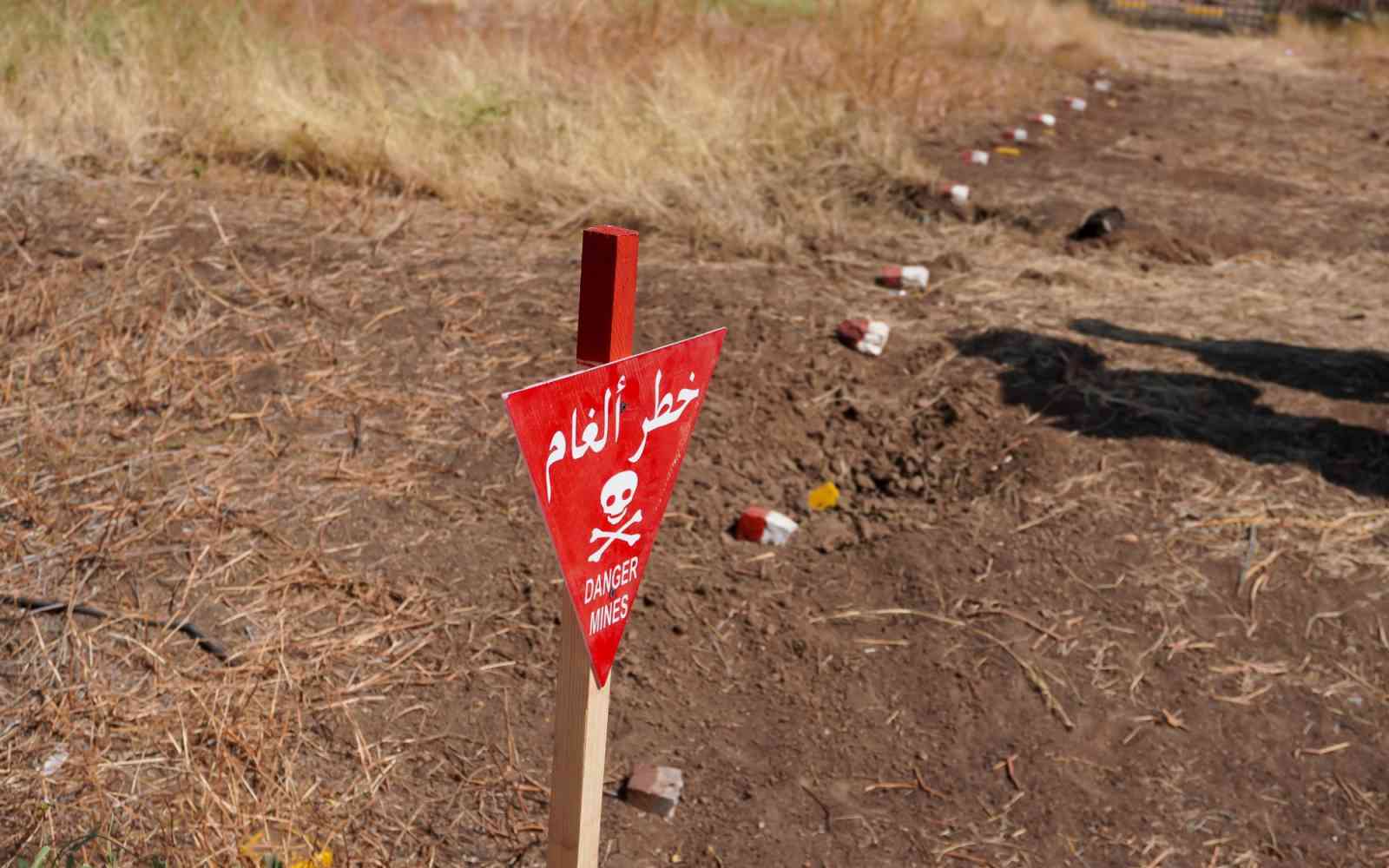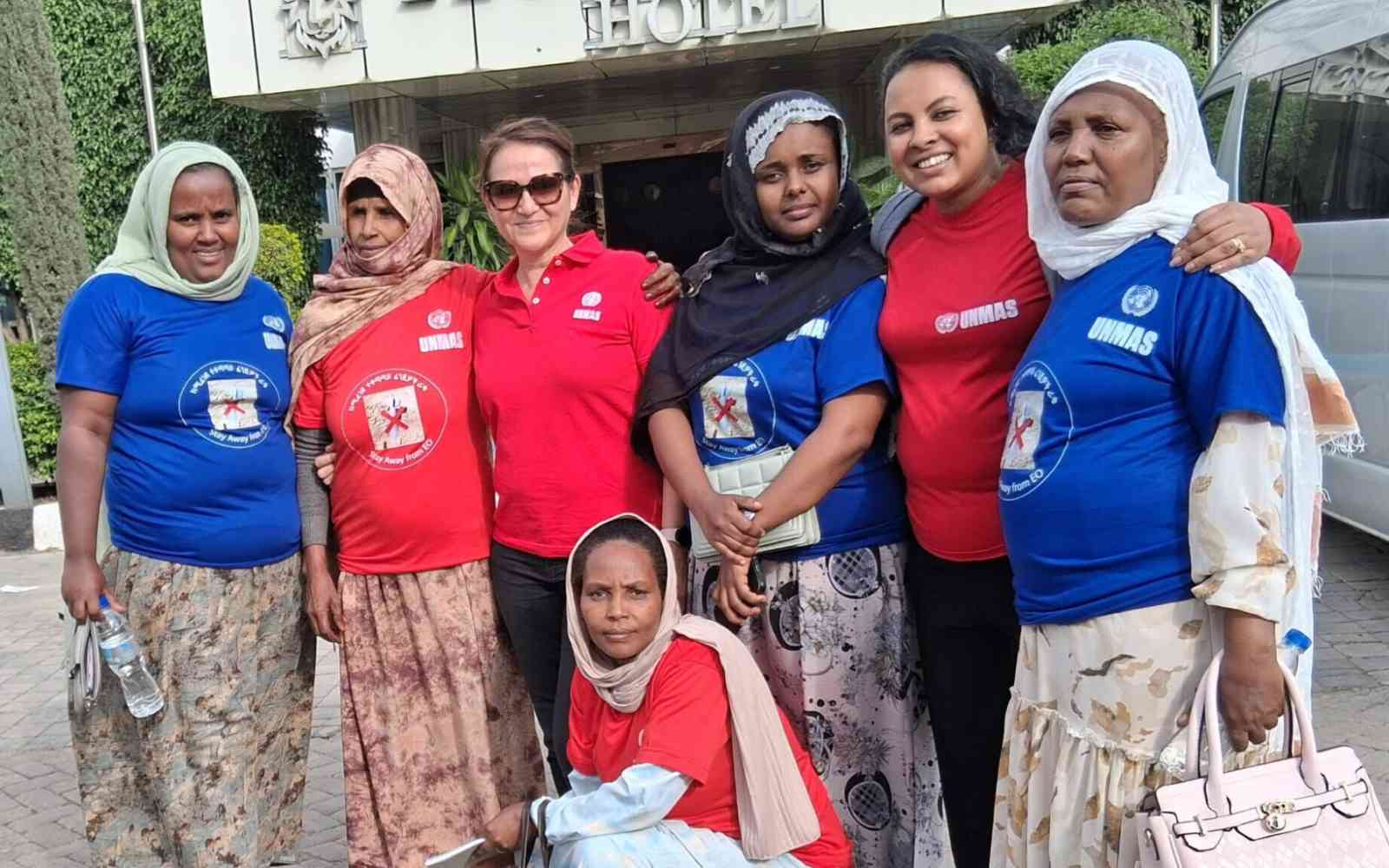The United Nations Office for Project Services (UNOPS)
AI innovation transforms mine action
UNOPS is a finalist at the 2025 AI for Good Impact Awards, honouring its cutting-edge use of artificial intelligence to transform mine action efforts and post-conflict recovery in Afghanistan, Colombia and beyond.
Across conflict-affected areas of the world, explosive ordnance (EO) continues to threaten lives and hinder development long after the fighting ends. For families returning home and communities seeking to rebuild, these hidden dangers – buried in soil, scattered across fields, and lodged near homes – pose a deadly risk.
A powerful innovation is helping change that.
Recognized as a finalist at the 2025 AI for Good Impact Awards, UNOPS developed an artificial intelligence solution that supports the full humanitarian mine action cycle – from identifying hazardous areas, to tracking the recovery impact of cleared land. The solution is already being used in Afghanistan and Colombia, and shows promising potential for use in other contexts around the world.
“This recognition affirms what we’ve long believed: that innovation, when guided by local needs and grounded in ethics, can save lives and unlock recovery,” said Rory Collins, Global Information Management and Analytics Advisor at UNOPS.
We developed an artificial intelligence solution that supports the full humanitarian mine action cycle – from identifying hazardous areas, to tracking the recovery impact of cleared land. The solution is already being used in Afghanistan and Colombia, and shows promising potential for use in other contexts around the world.
AI is not replacing human expertise – it’s empowering it.
Developed in collaboration with academic partners, the system is built on two core AI modules:
RELand, which uses geospatial data to prioritize clearance based on environmental, historical and socio-economic factors. It helps teams make smarter, safer decisions.
Remote Sensing and GeoAI, which use satellite imagery to detect and measure recovery after land is cleared – from housing and infrastructure to agriculture and job creation.
Together, these tools show not only where land needs clearing, but also how that work supports long-term recovery.
In Afghanistan, this technology has shown that clearing land in Kandahar unlocked over $1 billion in economic development and created more than 15,000 jobs. In Colombia, RELand helped reduce false alarms and sped up land release.
At a challenging time for humanitarian and development efforts, this analysis helped UNOPS mine action programme in Afghanistan show how this critical work is making a tangible contribution towards the Sustainable Development Goals.
“We’ve seen firsthand how this technology is making a difference on the ground. It’s no longer just about removing mines, it’s about unlocking futures,” said Abdul Samy Shakoori, Humanitarian Mine Action Regional Manager, Southern and Western Afghanistan, UNOPS Peace & Security Cluster
“For years, we struggled to show donors and communities the full impact of our work. With AI-driven analytics, we now have the evidence to prove that mine action directly contributes to sustainable development and peace,” he added.
The 2025 AI for Good Impact Awards will take place from 8 to 11 July in Geneva, convening global leaders to showcase how AI is solving some of the world’s toughest challenges. As a finalist, UNOPS stands among those demonstrating that technology can do more than inform – it can inspire, empower, and drive real change.















